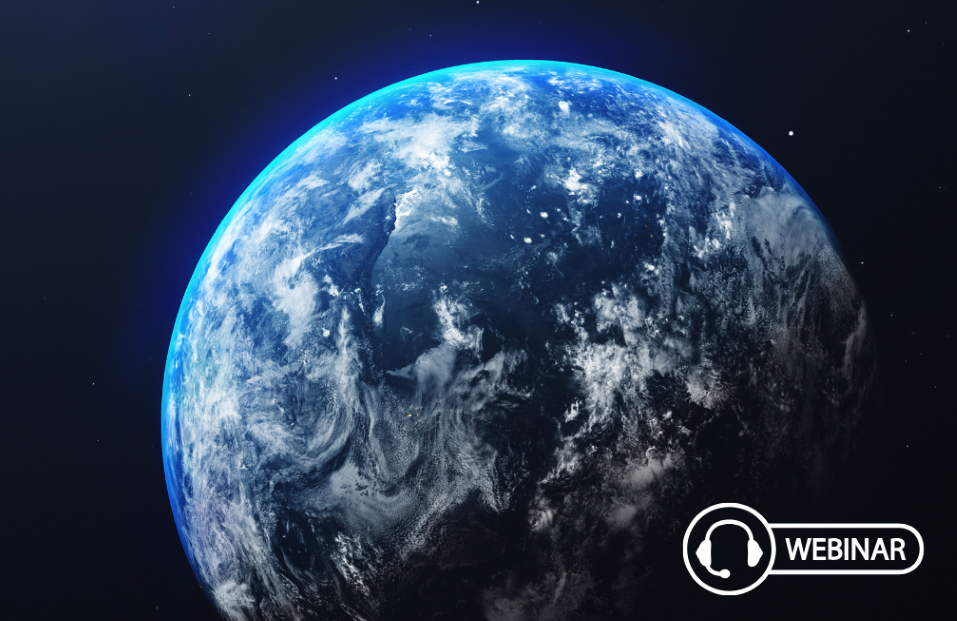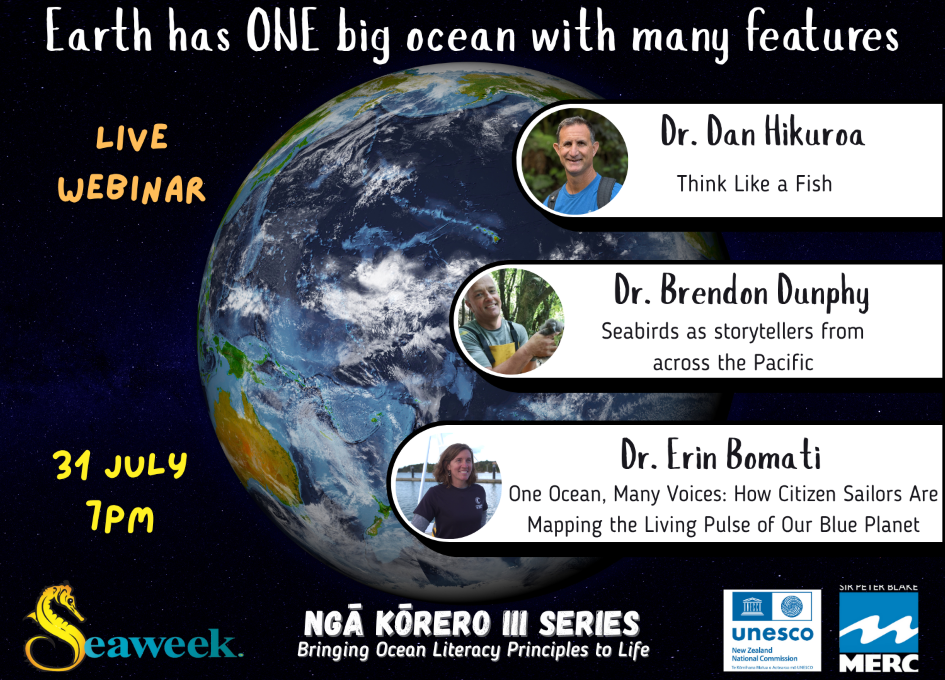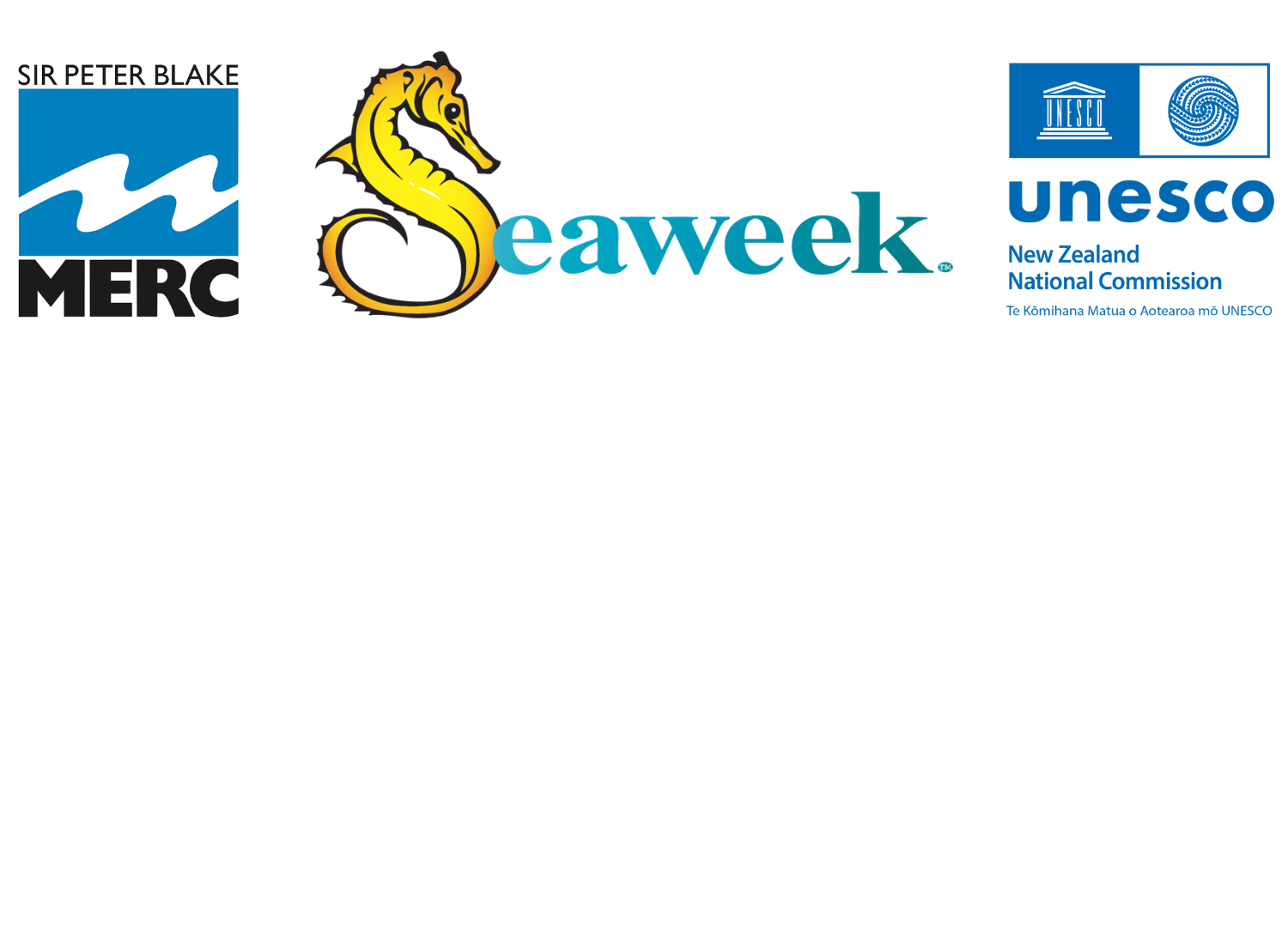
Our first webinar of the Ngā Kōrero III Series explores Ocean Literacy Principle #1: Earth has one big ocean with many features.
This series is designed around the Ocean Literacy Framework with each event focusing on one of the Ocean Literacy Principles with the goal of increasing ocean literacy across Aotearoa New Zealand. Ocean Literacy generally means understanding the ocean's influence on us as well as our influence on the ocean.
Our MC for the evening webinar will once again be the wonderful Alison Ballance. Our speakers will offer knowledge of broader connections across ocean basins and highlight the interconnectedness of the world ocean, and New Zealand's unique position, from different perspectives.
Register here for free to join us live at 7pm on Thursday the 31st of July!

More About Our Speakers & MC
Dr. Dan Hikuroa
Dan Hikuroa (Ngāti Maniapoto, Waikato-Tainui, Ngaati Whanaunga, Pākehā) is a father, surfer and gardener. He is Associate Professor in Māori Studies, University of Auckland, UNESCO New Zealand Commissioner for Culture and world expert on weaving indigenous knowledge and science to realise the dreams and solve the challenges of the communities he works with.
Think Like a Fish
Rather than Earth, our planet might more accurately be called Ocean, as it ruled by one great, interflowing ocean, with its circulating winds and currents regulating temperature and climate, migratory fish, and surging tidal rhythms, gifting us sustenance and oxygen. This talk will span the conceptual - what 'Thinking like A Fish' means, as well as the physical - oceans dynamism through time.
Dr. Brendon Dunphy
Brendon Dunphy was privileged to grow up in Whangāparaoa on the Hibiscus Coast, where the sea was his playground. Years of fishing, snorkelling, surfing and simply observing left him with a deep love of the ocean, but also a number of questions. Fast forward a few years and he is now an Associate Professor at Waipapa Taumata Rau/The University of Auckland where he and his students research how marine animals respond to climate change at both local and international scales. Given that Aotearoa/New Zealand is the seabird capital of the world, seabirds are a key focus, especially petrels and shearwaters that undertake an annual migration of 60,000 km across the Pacific Basin seeking resources in an apparently featureless expanse.
Seabirds as storytellers from across the Pacific
Aotearoa/New Zealand is the seabird capital of the world with the highest diversity of seabird species on the planet. As top predators, seabirds reflect the health of food webs, with some using Antarctic food webs for breeding, before flying to the northern hemisphere to target food webs of the Arctic so they can recover. In this way different seabirds can tell us about change occurring both locally, but also over the horizon, and far out to sea. In this korero I will cover work we are undertaking to ‘hear’ the stories of seabirds. By integrating information from both outer- and inner-space we can begin to interpret what they are ‘telling’ us about the state of our oceans. From there we can glean what features of the oceans are important to them. We can visualise how a chick raised on an island in the Hauraki Gulf is connected to undersea mountains, currents, and wind from across the Pacific in order for it to survive into adulthood.
Dr. Erin Bomati
With a background in enzyme biochemistry and over a decade in the genomics industry, Erin stepped beyond the research to champion citizen science. Driven by a deep passion for ocean conservation, she led an award-winning science outreach program in New Zealand, introducing high school students to the exciting world of marine eDNA. An avid sailor herself, Erin was inspired by the mission to build a global community of sailor-scientists, empowering everyday mariners to make meaningful contributions to the study and protection of ocean health.
One Ocean, Many Voices: How Citizen Sailors Are Mapping the Living Pulse of Our Blue Planet
The ocean is vast, dynamic, and deeply interconnected—shaping weather, coastlines, and life itself. Understanding this ever-changing realm requires global data, far beyond the capacity of research vessels alone. Citizens of the Sea (CitSea), a New Zealand initiative co-founded by Cawthron Institute and NZ Geographic, equips everyday sailors with eDNA samplers to collect marine biodiversity snapshots—from remote coral reefs to open ocean. Analysis of these citizen-generated samples help scientists assess how currents, sea level, and climate shifts influence life across the planet. This presentation shares stories and discoveries from the high seas—how cruising families and solo racers unite to build a global ocean-health picture. It celebrates collaboration, curiosity, and ordinary people protecting our extraordinary, shared ocean.
MC Alison Ballance
Author and Broadcaster, Alison is a former producer of Radio New Zealand’s weekly science and environment program ‘Our Changing World’. Alison brings her passion for meeting and interviewing passionate people, sharing their knowledge and stories, as well as her background as a zoologist, wildlife filmmaker, writer, radio producer and diver, to name a few. She is an award-winning writer, with 30 natural history titles to her name, and is a Member of the New Zealand Order of Merit. She’s spent more time than most others on the rugged and famously windblown sub-Antarctic islands which have a special place in Ballance's heart, the location for one of her toughest living and working experiences.
View past webinars on our Seaweek Youtube Channel!
For Ocean Literacy resources to use in the classroom, see our Ocean Literacy Educators Guide!
